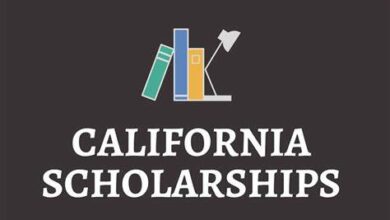2025 Chinese Government Scholarship – Apply Now

The Chinese Government Scholarship (CGS) for 2025/2026 is now open for applications! This scholarship offers opportunities for international students to study in China, covering undergraduate, master’s, and Ph.D. programs. It includes benefits like tuition coverage, accommodation, basic health insurance, and a monthly allowance.
To apply, you’ll need to:
1. Submit an online application through the [CSC portal](https://scholarshiproar.com/chinese-government-scholarship/).
2. Provide required documents, such as academic transcripts, a copy of your passport, and language proficiency certificates.
3. Meet eligibility criteria, including age and educational qualifications.
The application period generally runs from December 15, 2024, to April 30, 2025, but deadlines may vary depending on the university or agency.
If you’re interested, I can help you explore more details or guide you through the process!
To be eligible for the Chinese Government Scholarship (CGS) 2025, applicants must meet the following criteria:
1. **Citizenship**: Must not be a citizen of China.
2. **Age Limits**:
– Undergraduate programs: Under 25 years old.
– Master’s programs: Under 35 years old.
– Ph.D. programs: Under 40 years old.
3. **Academic Qualifications**:
– Undergraduate: High school diploma or equivalent.
– Master’s: Bachelor’s degree.
– Ph.D.: Master’s degree.
4. **Health**: Must be in good physical and mental health.
5. **Language Proficiency**:
– For Chinese-taught programs: HSK Level 3 or higher (depending on the program).
– For English-taught programs: Relevant English proficiency certificates like IELTS or TOEFL may be required.
Additionally, applicants should not be receiving any other scholarships from the Chinese government.
If you’d like, I can help you explore the application process or required documents!
The Chinese Government Scholarship (CGS) stands out for its comprehensive coverage and accessibility. Here’s how it compares to other scholarships:
1. **Coverage**:
– CGS offers full tuition, accommodation, basic health insurance, and a monthly stipend, making it one of the most generous scholarships available.
– Other scholarships, like the Fulbright or Chevening, may cover tuition and living expenses but often exclude accommodation or health insurance.
2. **Eligibility**:
– CGS is open to students worldwide, with a focus on fostering international cooperation.
– Some scholarships, like Erasmus Mundus, are limited to specific regions or partnerships.
3. **Focus**:
– CGS emphasizes cultural exchange and education in China, with programs in Chinese and English.
– Scholarships like DAAD (Germany) or Commonwealth (UK) focus on specific academic fields or development goals.
4. **Application Process**:
– CGS has a straightforward online application process, while others may require interviews or additional steps.
If you’d like, I can help you explore other scholarships or dive deeper into any of these comparisons!
Typical eligibility criteria for scholarships can vary widely depending on the scholarship’s purpose, target audience, and sponsoring organization. However, here are some common factors:
1. **Academic Performance**:
– Minimum GPA requirements or specific grades in prior studies.
– Demonstrated academic excellence in certain subjects.
2. **Age Restrictions**:
– Some scholarships have age limits, particularly for undergraduate or postgraduate programs.
3. **Citizenship/Residency**:
– Open to students of certain nationalities or residents of specific countries.
4. **Field of Study**:
– Scholarships may target specific academic disciplines or areas of research.
5. **Financial Need**:
– Some scholarships are need-based, requiring proof of financial hardship or limited resources.
6. **Language Proficiency**:
– English proficiency (TOEFL/IELTS) for programs taught in English.
– Proficiency in the host country’s language if required.
7. **Health Conditions**:
– Good physical and mental health may be a prerequisite.
8. **Extracurricular Activities**:
– Community service, leadership roles, or unique talents can be considered.
9. **Special Groups**:
– Certain scholarships cater to underrepresented groups, such as women in STEM, ethnic minorities, or individuals with disabilities.
10. **Application Essays/Interviews**:
– Personal statements and interviews often play a role in assessing applicants’ motivations and qualifications.
These are general guidelines, so always review the specific requirements of the scholarship you’re interested in! Let me know if you’d like help identifying scholarships that match your profile or interests.
The scholarships you should consider depend on your academic goals, financial needs, and personal interests. Here’s an overview of the major types to explore:
### 1. **Merit-Based Scholarships**
– Awarded for academic achievements, extracurricular excellence, or specific talents (e.g., music, sports).
– Examples: National Merit Scholarships, university excellence awards.
### 2. **Need-Based Scholarships**
– Designed for students who demonstrate financial hardship.
– Often require documentation like income statements.
– Examples: Federal Pell Grants (US), some private foundations’ scholarships.
### 3. **Government-Funded Scholarships**
– Provided by governments to encourage international education or study in specific fields.
– Examples: Chinese Government Scholarship (CGS), Fulbright Program, Commonwealth Scholarships.
### 4. **Field-Specific Scholarships**
– Targeted at students pursuing certain disciplines like STEM, arts, or humanities.
– Examples: DAAD Scholarships (for research), Google scholarships (for tech/STEM students).
### 5. **Location-Based Scholarships**
– For students from or studying in specific countries or regions.
– Examples: Chevening Scholarships (UK), Erasmus+ (Europe).
### 6. **Minority or Underrepresented Group Scholarships**
– Support students from specific demographic groups, such as women in STEM or ethnic minorities.
– Examples: Women Techmakers Scholarship, Gates Millennium Scholars Program.
### 7. **University-Specific Scholarships**
– Offered by individual universities for incoming or current students.
– Often tied to academic performance or leadership qualities.
### 8. **Corporate/Private Scholarships**
– Sponsored by companies or private organizations to support education and foster potential future employees.
– Examples: Coca-Cola Scholars Program, Google Africa Scholarship.
### 9. **Sports Scholarships**
– Awarded to athletes with exceptional ability, often requiring participation in school teams.
### 10. **Creative/Artistic Scholarships**
– For students with talents in fields like music, art, or design, often requiring portfolio submission.
Are you looking for scholarships in a specific category or region? I’d be happy to help you narrow down your options further!



